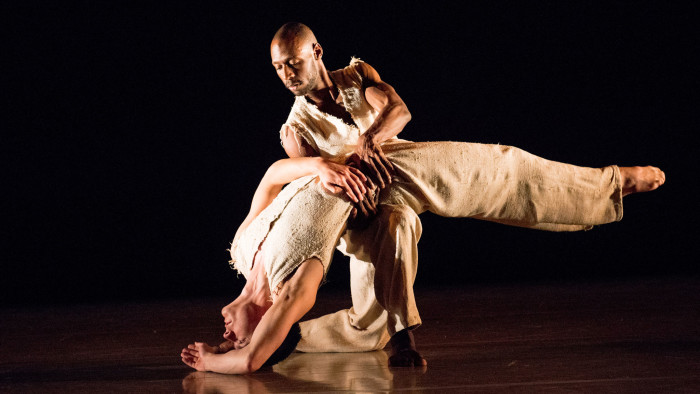Britten and Alston, Barbican, London

Simply sign up to the Life & Arts myFT Digest -- delivered directly to your inbox.
Richard Alston’s musical sensibilities must be a guiding fact in any survey of his work, from his early steps – the ingenuities of his youthful Soft Verges – to his grandly mature creations. Music, of how many differing and teasing kinds, is the bedrock of his dances, and it is opportune that, in the celebrations of Britten’s centenary, he should provide a programme – seen for the first time at the Barbican on Wednesday – which features two existing works to Britten scores with two further Barbican/Britten commissions. And there, too, the Britten Sinfonia on splendid form, with Pekka Kuusisto as admirable violist and conductor.
Of the novelties, Phaedra must be considered the more important. A setting of Robert Lowell’s paraphrase on Racine, it focuses on the Phaedra of the mezzo Allison Cook, the progress of the drama reflected in the dances of a chorus. The movement is decently illustrative and the dancers, wearing unisex tunics of a disastrous un-chic to rival Phaedra’s super-glum evening-dress, register appropriate feelings while the singer parades tragically, Crummles-fashion, among them. Racine was mother’s milk to me, and I felt less than engaged by the event.
The new Hölderlin Fragments is much more to the point, exploring those elliptic verses with sensitivity and admirably realised by its cast. Alston’s 1994 response to Lachrymae, Britten’s contemplations on Dowland, grandly played by Kuusisto, is a sequence of duets that probe into feelings, the dance as austere and allusive as the score.
Very different the performance of Les Illuminations, tremendous music tremendously played, and tremendously sung by Robin Tritschler. Here is Alston at his most penetrating yet most open in turning music into dance, and on the Barbican’s stage, with the orchestra behind, with admirable lighting, his dancers gave grandest accounts of dances sprung vividly from music and words.
And, in Liam Riddick’s intense performance here was Rimbaud himself, as visionary and victim and youthful genius. A portrait inspired and guided by verse, music, dance, it was a memorably fine interpretation. Wholly unmemorable the suicidal outfits that blighted the other productions. There is no excuse for sending dancers out on stage looking like derelict swimmers or survivors of a siege.

Comments